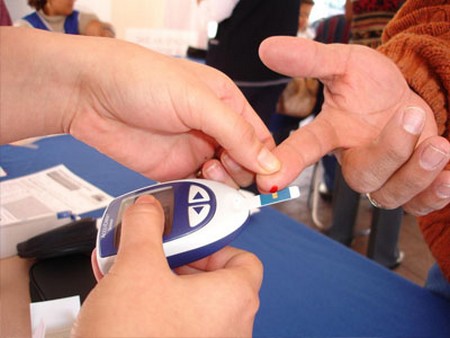Your family and friends need to get used to the fact that you have diabetes. The disease has its greatest impact on you, but it also affects the people around you, especially those in your household.
You have a serious chronic disease and that’s scary to those who love and care about you. Perhaps they’re afraid you’ll die soon (children are particularly prone to fearing the loss of a parent) or you’ll go blind and won’t be able to work and take care of them. Maybe the glucose monitor, bottles of pills, and vials of insulin freak them out. Maybe they’re annoyed because right now all you think about is your eating plan and getting used to your various regimens, and you’re paying less attention to them. Who knows what they are thinking. You won’t know until you ask. If you want the support of your family and close friends, you need to talk things through with them. You need to tell them how you feel about having diabetes and find out how they feel about it. You need to tell them what scares you and find out what scares them.

It’s up to you to initiate these conversations, and to some extent, it’s up to you to educate the people close to you about your disease. It may be unfair if they don’t take responsibility to learn about what affects you on their own, but it’s up to you to get your needs met. There are a few enlightened partners who will go to the library or bookstore without being asked and read about diabetes, but for the most part, they will be the listeners, and you will be the expert.
In the long run, taking the time to teach others about diabetes will be in your best interest. If people know what you can eat and what you can’t, if they watch you test your blood glucose a few times and if they see how easy it is to give yourself an insulin injection, they will feel less strange around you and your diabetes. They also won’t keep asking you the same questions over and over. “Are you sure you can eat this?” “Is this okay on your diet, hon?” “Now, tell me again: How many times a day do you have to use that machine?” This kind of nagging (and the feeling you get that the constant questions imply that they weren’t paying attention in the first place) is extremely stress-producing, and over time, can place serious strain on a relationship.
If you are participating in diabetes classes or are a member of a support group, consider taking your family and maybe even some close friends along with you. This is one way for them to see a bunch of healthy-looking people who have diabetes, all of whom are taking it in stride, coping well and controlling their disease. It also goes a long way to demonstrate that your family is not the only one that this has happened to, and when they see how other spouses and children behave, they will have positive examples of good family functioning and caring support.
It’s also a good idea to teach family members how to test blood glucose and give you an insulin injection. It’s another opportunity for them to learn more about diabetes and how it is controlled, and it gives them a feeling of participation in your well-being. It also can come in handy in an emergency.
There are a number of ways in which family and friends can be a hindrance as well as a help and thus inadvertently sabotage your efforts to control your diabetes. This is highly stressful, and it is up to you to remedy the situation. But remember, you can never change other people’s behavior, only your own. So in the following situations, it is up to you to decide how to react and what to do.

“Come on, one slice of pie isn’t going to make any difference. It’s not even that big a slice.” If there are other people present, your only option here, at least for now, is to say, “No, thank you,” or “No, I can’t eat the pie.” Repeat one of these responses until the message penetrates, and then later, when you have an opportunity to be alone, ask the person not to do that again. Say something like, “I know what I can eat, and it’s not helpful to me when you coax me into doing something that will hurt me. Please don’t do it anymore.” If people persist, ask why they are being so hostile, and explain to them that urging you to harm yourself is a very angry, hostile reaction to your diabetes and to you.
Here’s another stress-producing scenario: The minute you walk into someone’s house and in front of all the other guests, the host says, “You can eat everything I made for dinner. I went out and bought a special cookbook just for this meal, and I made a really big effort to cook everything dietetic.” Of course, you’ll probably want to sink into the floor from embarrassment—and from the looks on the other guests’ faces as they contemplate a meal of tasteless food. You have two choices here: The first is to say nothing; the second is to say, “Oh, thank you, but that really wasn’t necessary. Diabetics can eat everything in moderation, just like everyone else.” Then, when you get this person alone, you can explain how you felt and ask that it not be repeated.